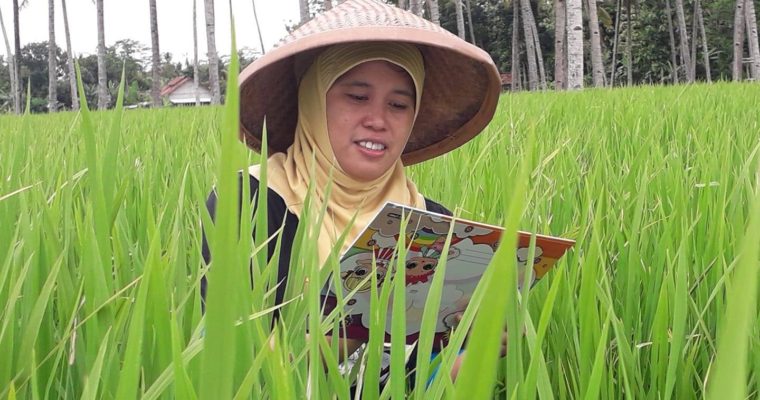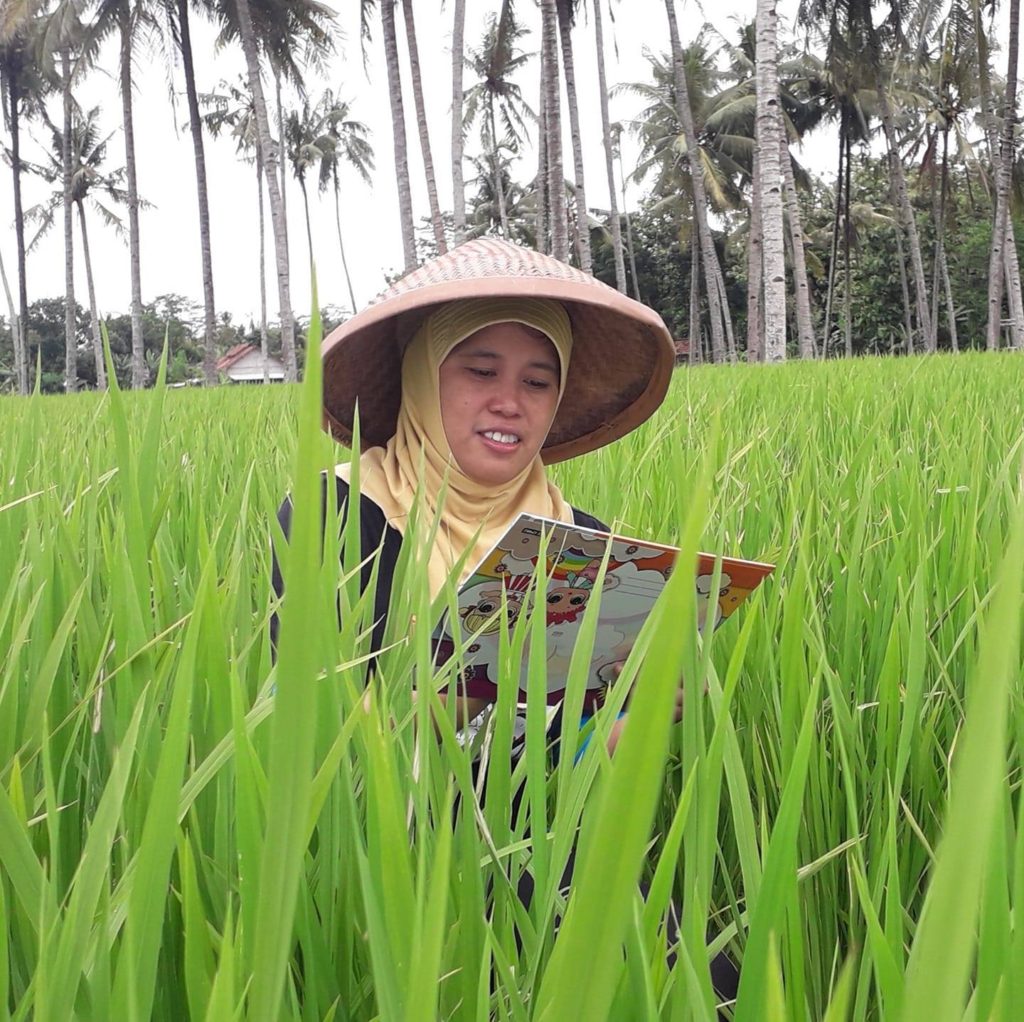This story was written by the editorial staff of the EU-ASEAN Blue Book 2021
If you want to have a peaceful life, be a farmer. If you want to be rich, be an entrepreneur.
Naning Suprawati is the eldest daughter in a family of farmers and while she never argued with her father, she had always known that she wanted something different than the two options her father laid out for her.
Suprawati went on to major in education in university but when she started her first teaching job, life in the classroom felt suffocating. She returned to her hometown in Blitar, East Java but didn’t give up on the idea of teaching. ‘I believe I can still be a teacher, even without a classroom’, she said.
In 2009, she joined the Indonesian Farmers Alliance (API) to improve the capacity-building support provided to farmers and their families.
‘I purposefully wanted to include women in the alliance’, she said. Traditionally, women have never been actively involved in the economic activities of the village, let alone the decision-making process. ‘I think this needs to change’, she said. ‘When women are given the opportunity to actively participate, their children and their whole families will benefit.’
Under the Medium-Term Cooperation Programme Phase Two (MTCP2) of the ASEAN Farmers’ Organisation Support Programme (AFOSP), Suprawati started organising various capacity-building activities. The sessions cover a wide range of different topics, from financial literacy and management to entrepreneurship skills, organic farming and vocational training for women. AFOSP is a multi-stakeholder project funded by the EU and the International Fund for Agricultural Development to improve the livelihoods and food security of smallholder farmers and rural producers in ASEAN countries.
‘Most farmers here still have the same mindset as my father’s, Suprawati said. ‘They believe that as farmers, they don’t have to think about how to sell their produce or how to run a business. But understanding the business side of things can really help the farmers become more successful’.
Suprawati started with training farmers on basic financial literacy skills, ‘We ask the farmers to categorise their expenses into needs and wants’, she said. ‘Once we found out that most farmers are spending more than what they’re earning, we asked them to identify potential sources of extra income.’
Through a series of simple activities, the community identified the potential of using papaya as more than a source of personal consumption. ‘Female farmers learnt how to process the surplus papayas they had into papaya chips’, she said. ‘This becomes another source of income for the family, which proves to be crucial in a time of a pandemic’.
The COVID-19 pandemic also disrupted the supply chain of fertilisers. Already equipped with the needed skills, API farmers turned to organic farming to continue production and utilised social media to market their produce directly to the consumers. ‘All the capacity building we have been doing all these years really proved to be useful especially during this challenging time’, she said.
Download the EU-ASEAN Blue Book 2021: EU-ASEAN-Blue-Book-2021





Comments are closed